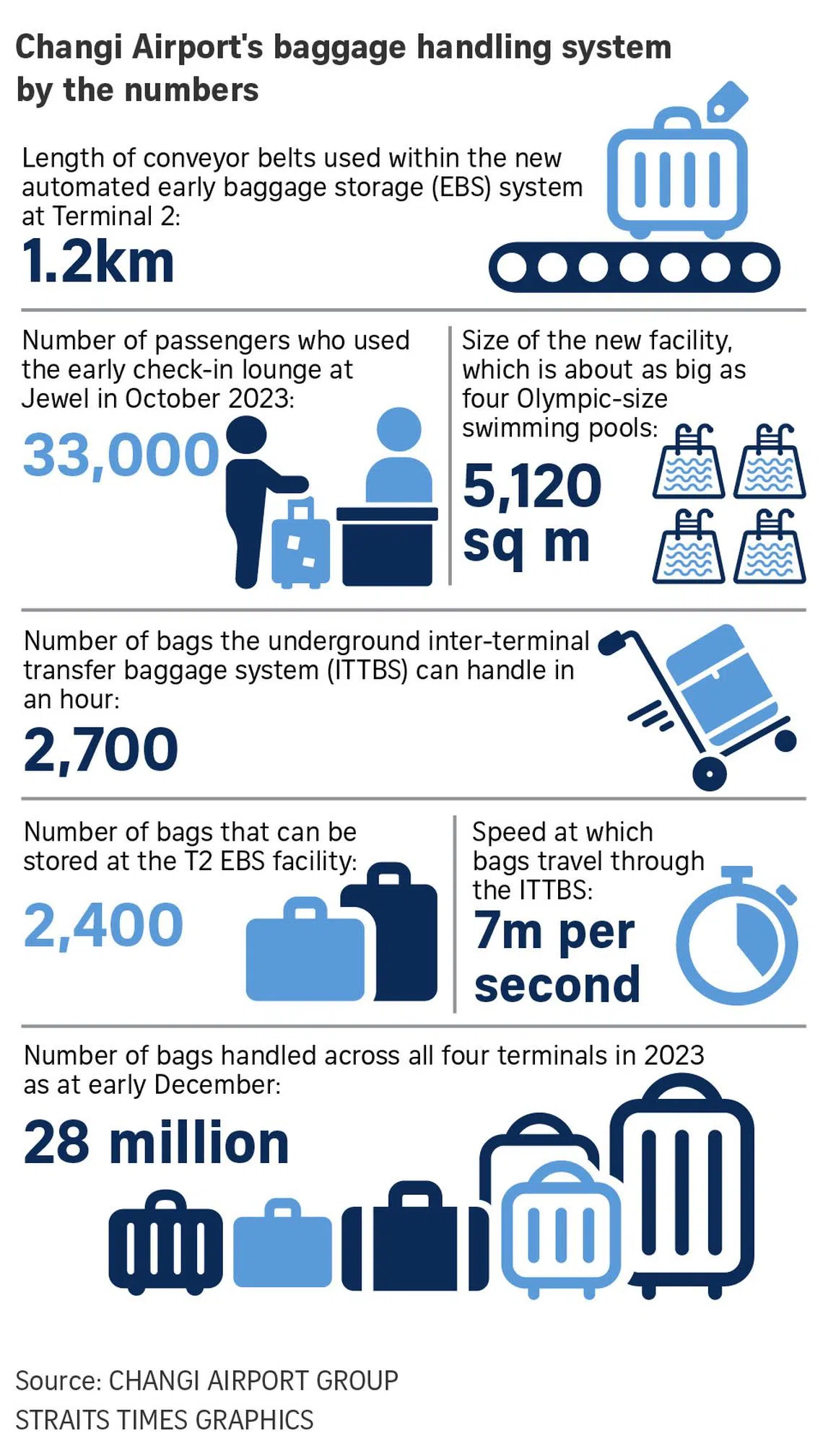Early baggage facility at Changi Airport’s T2 upgraded, now fully automated
Sign up now: Get ST's newsletters delivered to your inbox
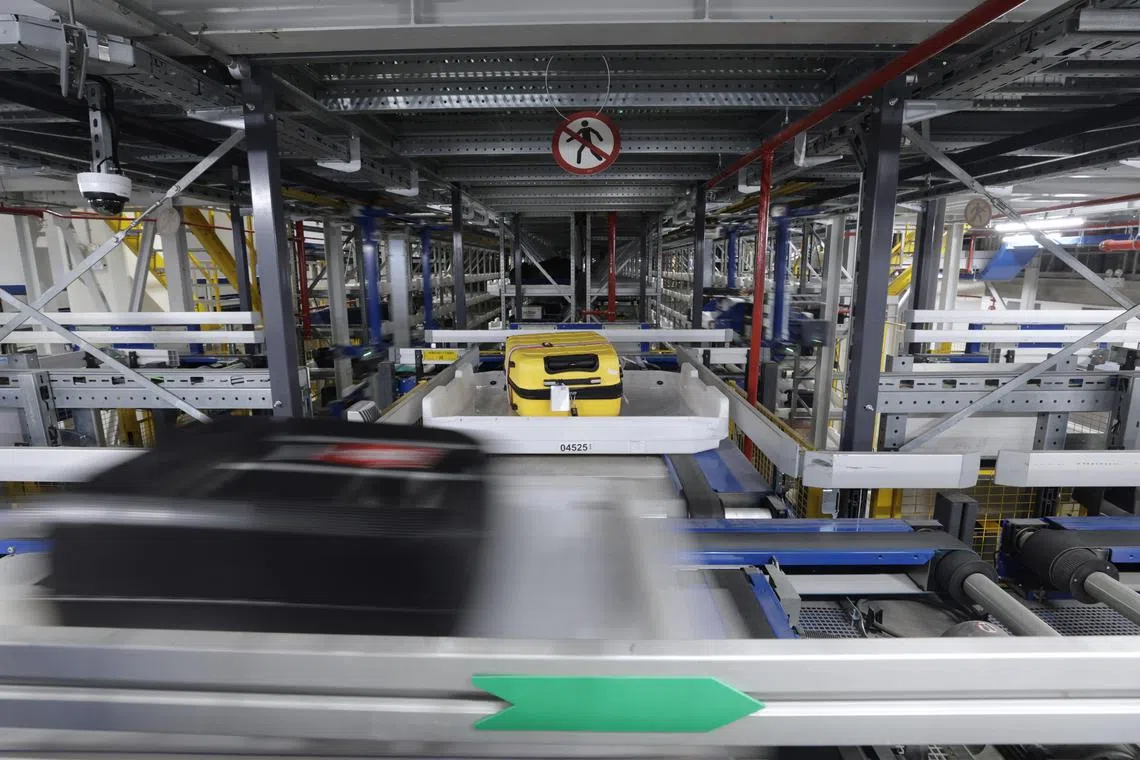
Automated cranes sort the bags, which were checked in early, into storage slots by height and weight.
ST PHOTO: KEVIN LIM
SINGAPORE – Next to Changi Airport’s Terminal 2 sits a facility the size of four Olympic-size swimming pools, where an average of 4,200 bags shuttle through a system of conveyor belts stretching over 1.2km every day.
Automated cranes sort the bags, which were checked in early, into storage slots by height and weight.
When the flight that the bags are bound for is ready for loading three hours before departure, the crane automatically retrieves them and sends them on their way.
More travellers are checking in bags early – more than three hours before their flight departs, said airport operator Changi Airport Group (CAG). More than 33,000 people used the early check-in lounge at Jewel Changi Airport in October, up from about 6,000 in January.
Passengers can check in at the Jewel lounge as early as 24 hours before their flight, depending on the airline. Regular airline counters open for check-in about two to three hours before a flight.
Sixteen airlines currently offer early check-in at Jewel, up from 10 airlines in January.
From October 2022 to September 2023, when T2 was partially opened,
The facility was fully manual at the time.
The bag movement and removal was done by 16 workers who operated in eight-hour shifts.
The 5,120 sq m facility, which can store up to 2,400 bags, became fully automated in October 2023.
This means the workers who had been doing the labour-intensive job of moving bags can be redeployed to other tasks, said Mr Koh Ming Sue, CAG’s executive vice-president of engineering and development.
“With the upgrade to full automation, there is no longer a need for human intervention,” he said.
Two technicians now monitor the system from a control room each shift.
After the early bags are checked in at Jewel, they enter the baggage handling system – a network of conveyor belts, sensors and sorters.
Luggage tags – which indicate the flight that the bag is bound for, its destination airport and a unique identification number – are then scanned.
After going through security screening, the bags are sent underground, where more than 13km of tracks connecting Terminals 1, 2, 3 and Jewel whisk the bags to their destinations at speeds of up to 7m per second. The inter-terminal transfer system can handle more than 2,700 bags an hour. Bags are transferred manually to and from Terminal 4.
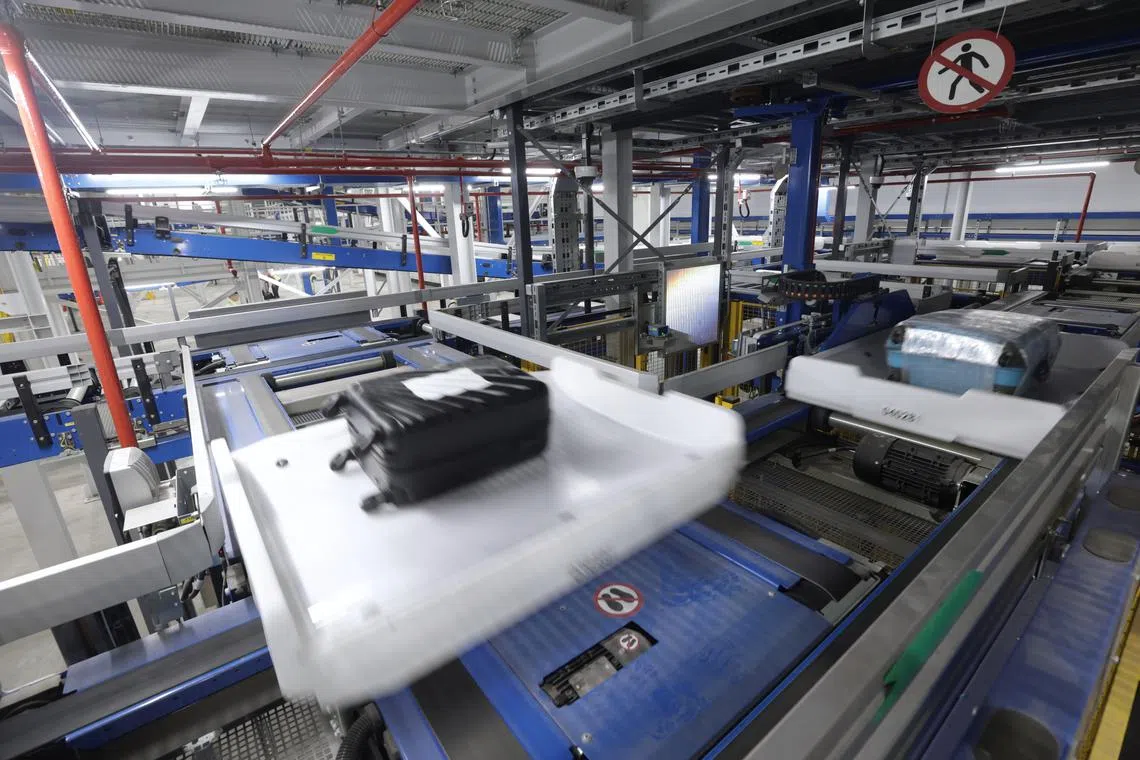
After the early bags are checked in at Jewel, it enters the baggage handling system – a network of conveyor belts, sensors and sorters.
ST PHOTO: KEVIN LIM
When the bags meant for T2 reach the new facility, they are placed on plastic trays and transported to the storage racks through conveyor belts. An automated crane slots the tray into its designated compartment. There are 16 such racks and each can store 150 bags.
If a crane malfunctions, an adjacent crane can take over retrieving the bags, so any affected bags can still be loaded onto its departing aircraft.
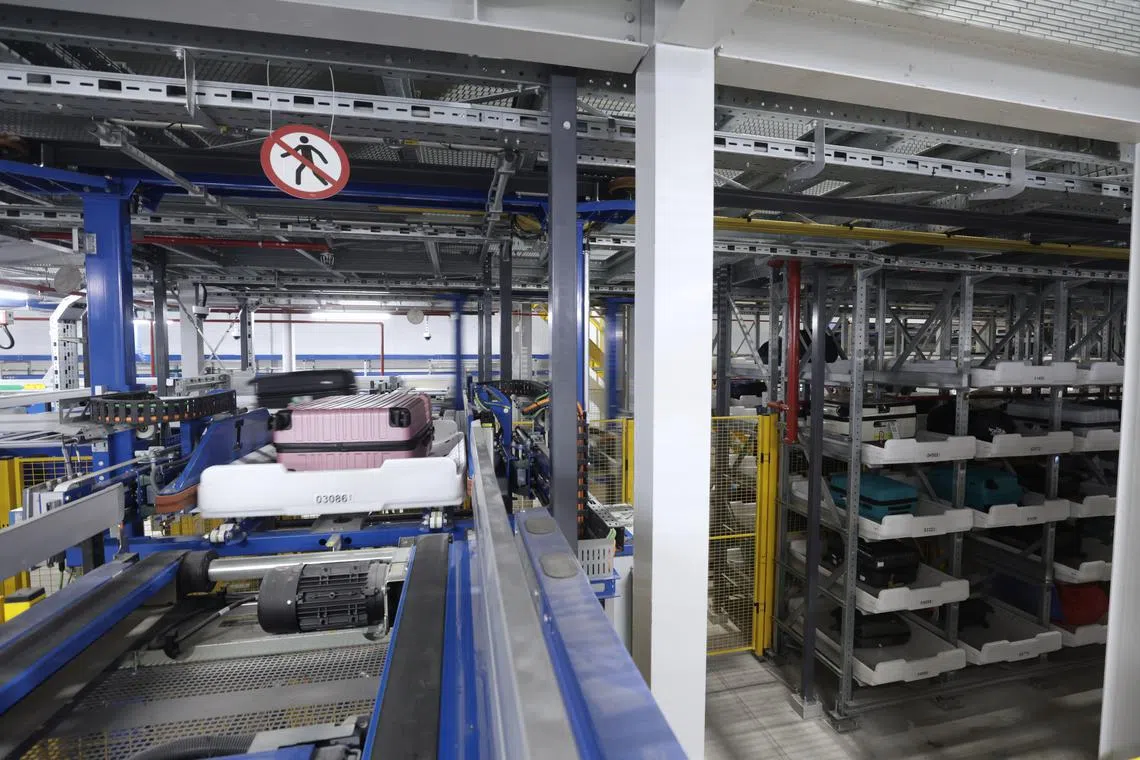
After going through security screening, the bags are sent underground, where more than 13km of tracks whisk the bags to their destinations at speeds of up to 7m per second.
ST PHOTO: KEVIN LIM
A similar system with automated cranes is also in place at Terminal 1.
The early baggage storage facilities at Terminals 3 and 4 use a lane-based system.
It is also fully automated, but a fixed storage space is set aside for each time slot, unlike the crane system, which can store bags in any available space.
The 2,400-bag capacity at the T2 facility is about double that of the facilities in T1 and T4. The compound at T3 can store up to 3,500 bags.
Currently, the T2 facility stores about 700 to 800 bags at any time on an average day, and about 1,000 bags on busier days.
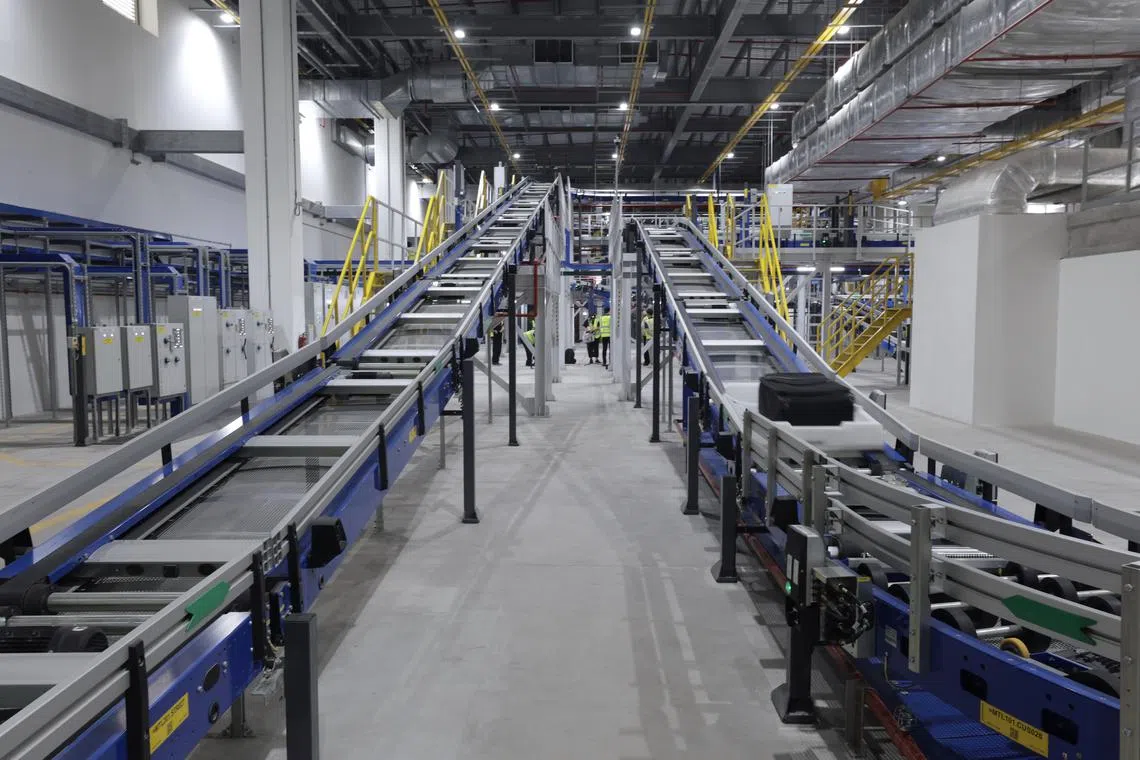
The 2,400-bag capacity at the T2 facility is about double that of the facilities in T1 and T4.
ST PHOTO: KEVIN LIM
About 5.6 million bags were checked in early in Changi Airport in 2023 as at early December, up from 3.8 million in 2022.
In total, Changi Airport has handled more than 28 million pieces of luggage across all four terminals in 2023, compared with 33 million in 2019 before the Covid-19 pandemic.
Mr Koh said as new innovations in airport baggage management systems emerge, CAG will study them to see if they can be used to improve their processes.
“Such continuous enhancement enables us to handle greater volumes of baggage, especially as air travel continues to recover,” he added.
